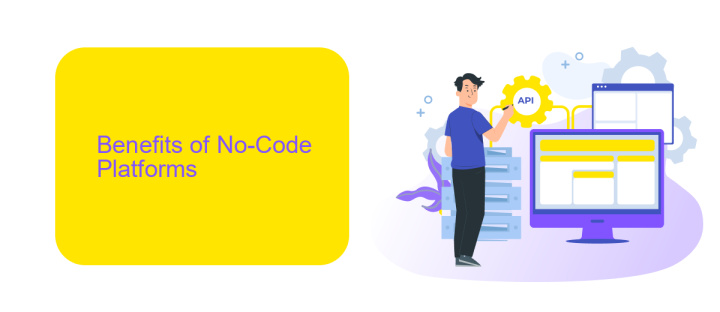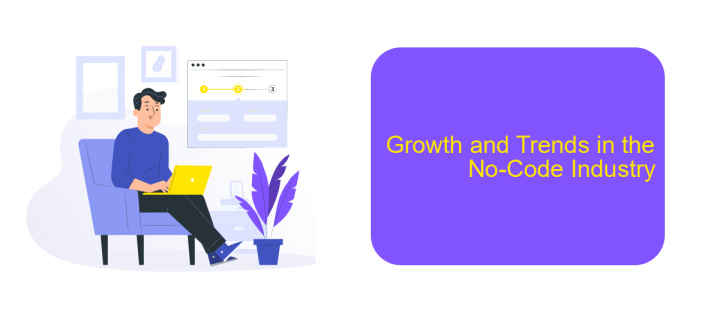No-Code Industry
The no-code industry is revolutionizing the way businesses and individuals build software applications. By enabling users to create functional, scalable, and customized solutions without traditional programming skills, no-code platforms are democratizing technology. This burgeoning field is empowering a new generation of creators, fostering innovation, and significantly reducing development time and costs. Welcome to the future of software development.
What is the No-Code Industry?
The No-Code Industry is revolutionizing how individuals and businesses create software applications without needing to write a single line of code. This approach leverages visual development tools, drag-and-drop interfaces, and pre-built templates to enable anyone, regardless of their technical expertise, to build functional applications quickly and efficiently.
- Accessibility: Empowers non-developers to create applications.
- Speed: Accelerates the development process.
- Cost-Effective: Reduces the need for hiring specialized developers.
- Flexibility: Offers a wide range of customization options.
- Integration: Easily integrates with other tools and services.
One of the key benefits of the No-Code Industry is its ability to integrate various services seamlessly. For example, platforms like ApiX-Drive allow users to automate workflows and connect different applications without any coding. This ensures that businesses can streamline their operations and improve efficiency by utilizing a no-code approach to integration. As a result, the No-Code Industry is not only democratizing software development but also enhancing operational capabilities across various sectors.
Benefits of No-Code Platforms

No-code platforms offer a myriad of benefits, making them an attractive choice for businesses of all sizes. One of the primary advantages is the significant reduction in development time. Traditional coding requires extensive programming knowledge and can take weeks or even months to complete a project. In contrast, no-code platforms allow users to create fully functional applications in a fraction of the time. This speed not only accelerates the time-to-market but also enables rapid prototyping and iteration, which is crucial for staying competitive in fast-paced industries.
Another key benefit is the democratization of technology. No-code platforms empower non-technical users to build and manage their own applications without needing to rely on specialized IT staff. This autonomy fosters innovation and allows teams to quickly adapt to changing business needs. Additionally, services like ApiX-Drive facilitate seamless integration with various third-party applications, enhancing the functionality of no-code solutions. By simplifying complex workflows and automating routine tasks, these platforms enable businesses to focus more on strategic initiatives rather than getting bogged down by technical challenges.
Applications of No-Code

No-code platforms are revolutionizing various industries by enabling users to create applications without writing a single line of code. These platforms empower individuals and businesses to develop custom software solutions quickly and cost-effectively. From automating workflows to building websites, no-code tools have diverse applications.
- Website Development: No-code platforms like Wix and Squarespace allow users to design and launch professional websites without any coding skills.
- Automating Workflows: Tools such as Zapier and ApiX-Drive enable seamless integration between different applications, automating repetitive tasks and improving efficiency.
- Creating Mobile Apps: Platforms like Adalo and Glide make it possible to build mobile applications with drag-and-drop interfaces.
- Data Management: Airtable and Notion offer robust solutions for organizing and managing data without the need for complex database knowledge.
- eCommerce Solutions: Shopify and BigCommerce provide no-code options for setting up and managing online stores.
By leveraging no-code platforms, businesses can reduce development costs and accelerate time-to-market for their products. These tools democratize software development, making it accessible to non-technical users and fostering innovation across various sectors.
Growth and Trends in the No-Code Industry

The no-code industry has experienced significant growth in recent years, driven by the increasing demand for rapid application development and the democratization of technology. Businesses of all sizes are leveraging no-code platforms to create applications, automate workflows, and streamline operations without the need for extensive coding knowledge.
Several key trends are shaping the no-code landscape. Firstly, the integration of artificial intelligence and machine learning into no-code platforms is enabling more sophisticated and intelligent applications. Secondly, the rise of citizen developers—non-technical users who can build applications—continues to expand the user base of no-code tools. Lastly, the emphasis on seamless integrations with other software systems is becoming increasingly important.
- AI and ML integration for smarter applications
- Growth of citizen developers
- Focus on seamless software integrations
One notable service in the realm of integrations is ApiX-Drive, which facilitates the connection of various applications and services without requiring coding skills. As the no-code industry continues to evolve, tools like ApiX-Drive will play a crucial role in enhancing the efficiency and capability of no-code solutions, making them even more accessible and powerful for businesses.
Future of No-Code
The future of the no-code industry looks incredibly promising, with advancements poised to revolutionize how businesses and individuals approach software development. As technology evolves, no-code platforms are becoming more sophisticated, enabling users to create complex applications without needing extensive programming knowledge. This democratization of technology empowers a broader audience to bring their ideas to life, fostering innovation and accelerating project timelines.
One significant trend is the increasing integration capabilities of no-code platforms. Tools like ApiX-Drive are at the forefront, offering seamless integration services that allow users to connect various applications effortlessly. These integrations enable businesses to automate workflows, enhance productivity, and streamline operations without the need for custom coding. As no-code platforms continue to evolve, we can expect even more robust features, greater flexibility, and widespread adoption across industries, making technology more accessible than ever before.
FAQ
What is the No-Code Industry?
Who can benefit from No-Code tools?
Are No-Code tools scalable?
How secure are No-Code platforms?
How can I automate workflows using No-Code tools?
Routine tasks take a lot of time from employees? Do they burn out, do not have enough working day for the main duties and important things? Do you understand that the only way out of this situation in modern realities is automation? Try Apix-Drive for free and make sure that the online connector in 5 minutes of setting up integration will remove a significant part of the routine from your life and free up time for you and your employees.

